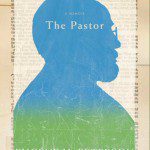 “The life of faith cannot be lived in general or by abstractions. All the great realities that we can’t touch or see take form on ground that we can touch and see.” (p.12) The spirituality I was handed through evangelicalism was profoundly dismissive of “this world” stuff in favor of “spiritual things.” As many have pointed out, this is Platonic-dualism. As a result evangelicals have a tendency to analyze their faith instead of living it. This is a pervasive problem.
“The life of faith cannot be lived in general or by abstractions. All the great realities that we can’t touch or see take form on ground that we can touch and see.” (p.12) The spirituality I was handed through evangelicalism was profoundly dismissive of “this world” stuff in favor of “spiritual things.” As many have pointed out, this is Platonic-dualism. As a result evangelicals have a tendency to analyze their faith instead of living it. This is a pervasive problem.
Peterson says all ministry is “Seemingly haphazard. But not without purpose.” (p.25) All of life is organically connected. Those who live in perfect alignment, always on task, clearly defined roles, are often disconnecting from the reality that most ministry happens accidentally. Intent is not a necessary condition for ministry to happen.
“The way we learn something is more influential than the something that we learn. No content comes into our lives free-floating: it is always embedded in a form of some kind.” (p.33) This is why liturgies and habits are so important. Without them we will not be formed in the virtues of the faith, but will be formed in the virtues of the culture instead.
“For every complex problem there is an answer that is clear, simple, and wrong.” (p.59) Beware of “one answer” solutions, no matter what the problem.
“The Holy Spirit forms church to be a colony of heaven in a country of death.” (p.110) This might be the best descriptor of the church I’ve ever read. It runs against what he terms the “Americanization” of the congregation.
“Classically, there are three ways in which humans try to find transcendence – religious meaning, God meaning – apart from God as revealed in the cross of Jesus: Through the ecstasy of alcohol and drugs, through the ecstasy of recreational sex, through the ecstasy of crowds. Church leaders frequently warn against the drugs and the sex, but, at least in America, almost never against the crowds.” (p.157) I will remember this every time I check my stats to see how many people read my blog last month.
“Worship was not so much what we did, but what we let God do in and for us… worship was our signature activity.” (p.172) Peterson’s vision of worship as central to church life is really strong. We become like that which we worship, thus our worship planning, prayers, and sermon prep is not a waste of time. Sunday worship is a big deal. Anyone who downplays it doesn’t understand it.
“Its inside is bigger than its outside.” (p.181) If this line, stolen from C.S. Lewis, could be honestly said of every church, the world would be a very different place. God let our inside be bigger than our outside.
“I had just assumed the energy would keep coming.” (p.207) It’s a harsh look in the mirror for every pastor who stays on the job longer than 5 years… one day you enter what Peterson calls “The Badlands.” We cannot live from goal to goal forever. At some point we have to stop digging ditches and start to dig a well.
A quote from a Catholic friend read, “Oh, you Protestants. You are so naive about evil. You know everything about sin, but nothing about evil – the prevalence of evil, the persistence of evil especially in holy places… You make cartoon characters out of evil so that you don’t have to deal with it in your own households and workplaces… or else deny it and label everything that is wrong with the world as sin you can name and then take charge of getting rid of.” (p.229)
On why deep down soul-work and ego displacement is so necessary, Peterson uses a line from Roger Bannister’s description of life after he broke the 4 minute mile. He said that he was like a carpenter who “made up for his lack of skill by using a lot of nails.” (p.277) Highly productive pastors can be making up for lack of skill by using a lot of nails.
“Pastors are in a position to be reminded daily that there is something radically wrong with the world. We are also engaged in doing something about it.” (p.282)
“You are at your pastoral best when you are not noticed. To keep this vocation healthy requires constant self-negation, getting out of the way. A certain blessed anonymity is inherent in pastoral work. For pastors, being noticed easily develops into wanting to be noticed. May years earlier a pastor friend told me that the pastoral ego ‘has the reek of disease about it, the relentless smell of the self.’” (p. 292) What a brilliant line, the relentless smell of self. God help me for that.












